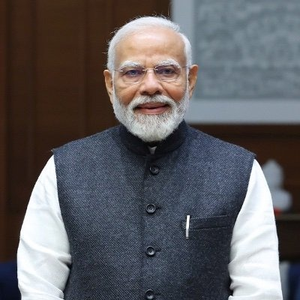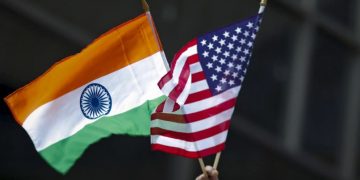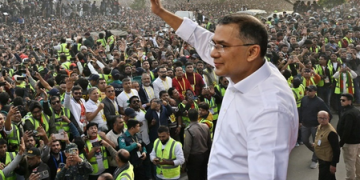London: India Thursday flagged its concerns to the UK over increasing activities of pro-Khalistani elements from British soil, with Prime Minister Narendra Modi asserting that forces with ‘extremist ideologies’ must not be allowed to misuse democratic freedoms.
Modi made the remarks after meeting his British counterpart Keir Starmer at Chequers, the countryside residence of the UK prime minister that is located 50 kms northwest of London.
With Starmer by his side, Modi also said that both India and the UK are “united in our view that there can be no place for double standards in the fight against terrorism” as he thanked the British government for its “strong” condemnation of the Pahalgam terror attack.
“We agree that forces with extremist ideologies must not be allowed to misuse democratic freedoms. Those who misuse democratic freedoms to undermine democracy itself must be held to account,” Modi said.
There have been increasing concerns in India about activities of pro-Khalistani elements in the UK, especially after an attack on the Indian High Commission in London in March 2023.
India has been flagging its concerns to the UK over the activities of pro-Khalistan elements.
At a media briefing, Foreign Secretary Vikram Misri said India shared its views with the UK on the activities of the “extremist elements”.
We have noted the fact that they are increasingly active and have in the past and continue to threaten the safety and security of our diplomatic missions and personnel, inciting violence against our leaders and our diplomats, he said.
At the same time, Misri noted that India received cooperation from the UK on the issue.
PM Modi also underlined the need to confront the challenge of terrorism with a firm approach.
“We thank Prime Minister Starmer and his government for their strong condemnation of the terrorist attack in Pahalgam. We are united in our view that there can be no place for double standards in the fight against terrorism,” Modi said.
It is understood that India’s challenge of cross-border terrorism figured in the talks.
Misri said Modi and Starmer expressed a commitment to strengthening the global fight against terrorism.
“It was noted that extremism and radicalisation pose a threat to both societies and that there is a need to further enhance bilateral collaboration and cooperation to deal with the scourges of terrorism, extremism and radicalisation,” he said.
The talks between Modi and Starmer largely focused on boosting bilateral ties in an array of areas, including trade, investment, defence and security, education and clean technology.
The two sides inked a landmark free trade agreement that seeks to boost both economies, slash tariff lines across 99 per cent of Indian exports, unlock thousands of jobs and cut tariffs on British whisky, cars and an array of other items.
The pact, officially named as the Comprehensive Economic and Trade Agreement (CETA), was signed by Commerce Minister Piyush Goyal and British Trade Secretary Jonathan Reynolds in the presence of the prime ministers of India and the UK.
The CETA, firmed up after three years of negotiations, is expected to ensure comprehensive market access for Indian goods across all sectors and India will gain from tariff elimination on about 99 per cent of tariff lines (product categories) covering almost 100 per cent of the trade values, officials said.
PTI






































